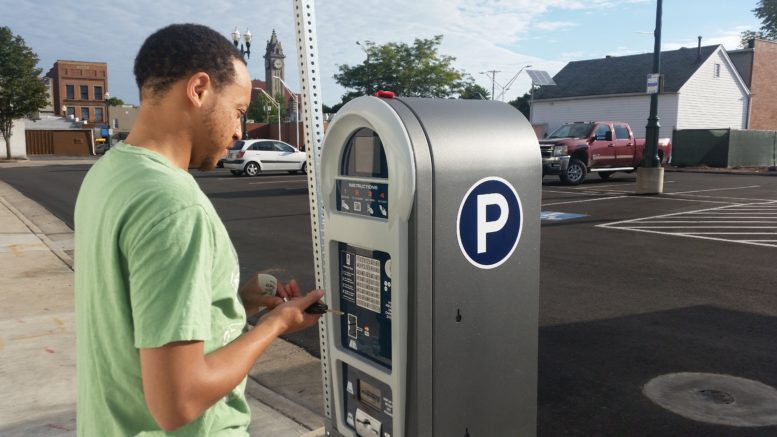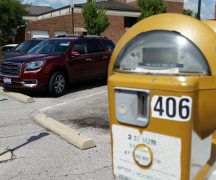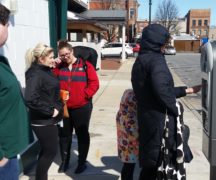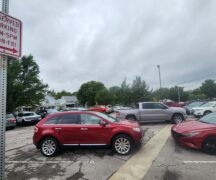By JAN LARSON McLAUGHLIN
BG Independent News
Downtown diners and shoppers will no longer have to pay for parking – but that move will come at some cost to the city of Bowling Green.
Last week, Mayor Mike Aspacher announced that parking in the downtown will be free – permanently.
The decision was applauded by residents who felt the new parking kiosks were too complicated. And it was cheered by downtown business owners who believed the kiosks were discouraging people from shopping downtown during a time when small businesses were already struggling.
“I believe this is in the best interest of our residents,” Aspacher said as he announced his plan to end parking fees downtown.
But the publicly popular decision has some financial repercussions for the city.
In 2016, the city made a decision to try parking kiosks in place of meters in a portion of the downtown. That initial purchase was approximately $60,000.
Then last year, the city decided to replace all the metered lots with kiosks – costing another $48,000.
According to Assistant Municipal Administrator Joe Fawcett, the company which sold the city the newer kiosks has offered to help sell all of the kiosks. The city has a potential buyer for at least some of them, he said.
Then there’s the issue of a loss of revenue.
Downtown parking fees brought in roughly $300,000 a year – with the vast majority going back into the parking fund to be used for the city parking lots.
The costs associated with the parking lots have averaged $250,000-$300,000 in recent years, Fawcett said. These costs include two staff members to monitor the lots and on-street parking, operational costs including maintenance, meter/kiosk materials, and real estate taxes.
“A majority of those costs will go away with free parking, including the $35,000 in property taxes paid annually,” Fawcett said. Additionally, the city will not need to replace a second employee to focus on parking issues.
“Now that there will no longer be numerous meters and kiosks to maintain, the only real long-term maintenance costs will be associated with paving the parking lots. That will most likely occur every 20 years and will be a part of the general paving program,” Fawcett said.
There has been no discussion about asking business owners or downtown property owners to share in the parking expenses.
Aspacher said he asked for the financial implications before making his decision to halt parking fees.
“I was troubled by that,” he said.
But the mayor said he weighed the cost to the city with the benefit to the businesses and citizens.
“At the end of the day, it really was important for us to do all we could do to support our downtown businesses,” Aspacher said.
The impact of COVID-19 on businesses added to his desire to make sure people weren’t discouraged to shop and dine downtown.
“In this moment it was the right thing to do,” he said.
The costs to the city are a “reasonable investment in our downtown,” Aspacher said.




